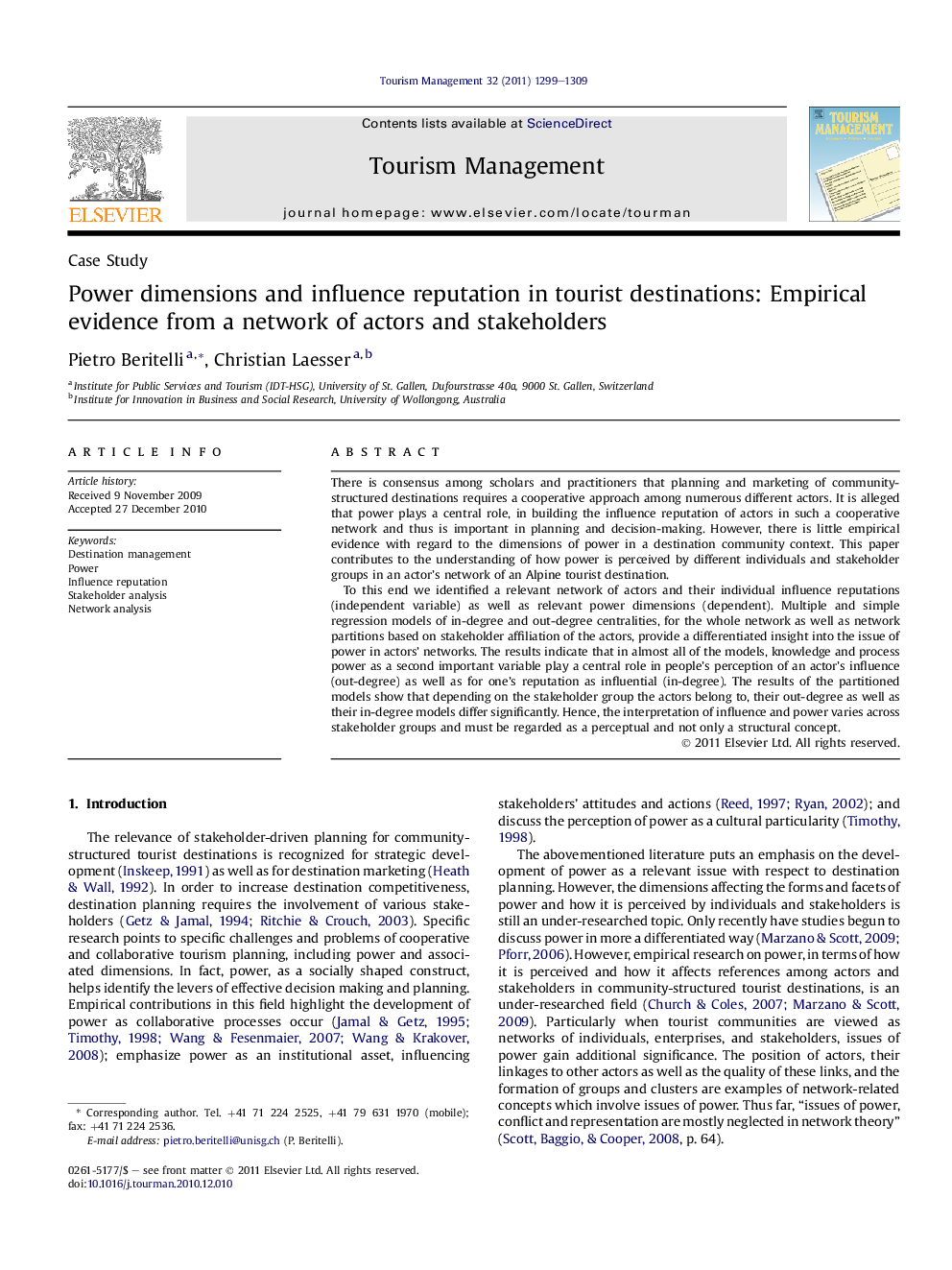| Article ID | Journal | Published Year | Pages | File Type |
|---|---|---|---|---|
| 1012651 | Tourism Management | 2011 | 11 Pages |
There is consensus among scholars and practitioners that planning and marketing of community-structured destinations requires a cooperative approach among numerous different actors. It is alleged that power plays a central role, in building the influence reputation of actors in such a cooperative network and thus is important in planning and decision-making. However, there is little empirical evidence with regard to the dimensions of power in a destination community context. This paper contributes to the understanding of how power is perceived by different individuals and stakeholder groups in an actor’s network of an Alpine tourist destination.To this end we identified a relevant network of actors and their individual influence reputations (independent variable) as well as relevant power dimensions (dependent). Multiple and simple regression models of in-degree and out-degree centralities, for the whole network as well as network partitions based on stakeholder affiliation of the actors, provide a differentiated insight into the issue of power in actors’ networks. The results indicate that in almost all of the models, knowledge and process power as a second important variable play a central role in people’s perception of an actor’s influence (out-degree) as well as for one’s reputation as influential (in-degree). The results of the partitioned models show that depending on the stakeholder group the actors belong to, their out-degree as well as their in-degree models differ significantly. Hence, the interpretation of influence and power varies across stakeholder groups and must be regarded as a perceptual and not only a structural concept.
